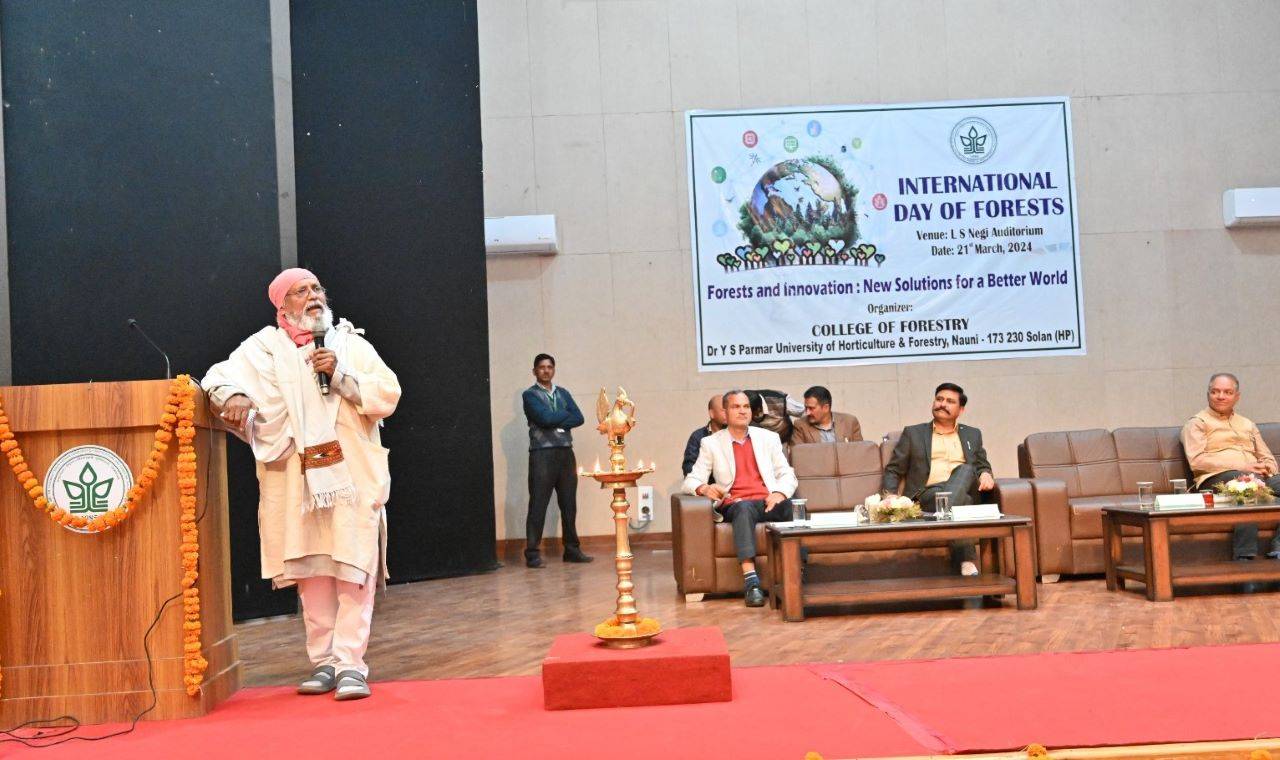
Dr. Anil Prakash Joshi, a distinguished environmentalist and the Founder of the Himalayan Environmental Studies and Conservation Organisation (HESCO), highlighted the importance of comprehending the science of nature, especially for students studying agricultural and forestry disciplines. He delivered this message during the World Forestry Day celebrations at Dr. YS Parmar University of Horticulture and Forestry, Nauni, on March 21 2024.
Speaking at the function, Dr Joshi highlighted the vital link between forests and human survival and stressed the need for heightened sensitivity towards nature. He advocated for a shift in practices that have previously been detrimental to the environment. The Padam Bhushan prize winner underscored the significance of collaborative efforts in climatic forestry and called for a balance between indigenous conservation methods and modern approaches, cautioning against blindly adopting western practices.
Vice Chancellor Prof. Rajeshwar Singh Chandel commended Dr. Joshi and HESCO for their contributions to supporting small farmers, environmental conservation, and fostering local markets for indigenous produce. He noted the alignment of indigenous practices and celebrations of local festivals with Sustainable Development Goals, emphasizing their relevance in today's global context. The university expressed its commitment to collaborating with HESCO on various forestry and environmental conservation initiatives of mutual interest.
Earlier, Dean College of Forestry Dr. CL Thakur welcomed the guests and outlined the objectives behind the celebration of World Forestry Day. He said that the theme for this year was ‘Forests and Innovation: New Solutions for a Better World’. Dr Thakur informed that each year over 10 million hectares of forests were cut but only a small percentage of this could be grown back.
Director of Research Dr. Sanjeev Chauhan provided insights into the current significance of forests and how they were important to ensure sustainable development. The scope of incorporating modern technologies like remote sensing, Artificial Intelligence, forest biotechnology and the role of youth in conservation efforts were also discussed.
The event featured student presentations including poems, songs and speeches, highlighting the critical role of forests in our lives. Students from both colleges, alongside university scientists, actively participated in the event. Dr Joshi also visited the university farms to learn about the research activities being undertaken in the university.
















